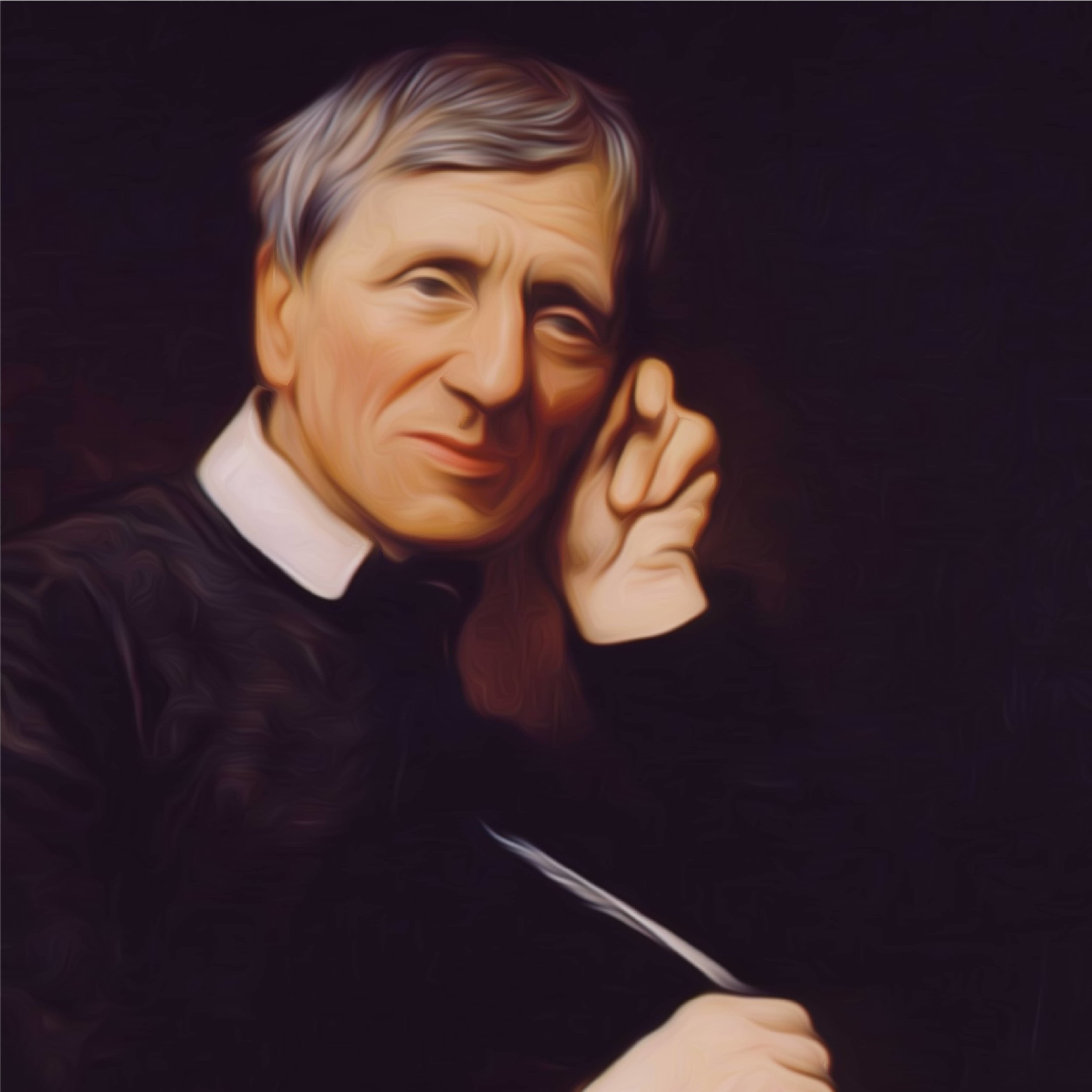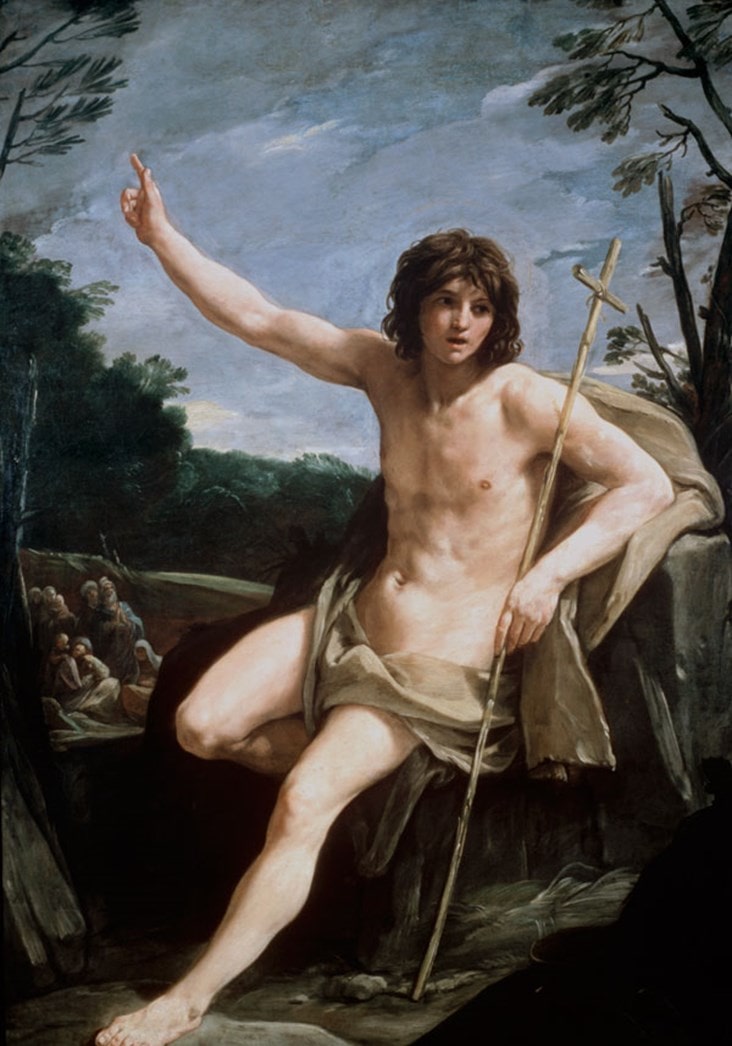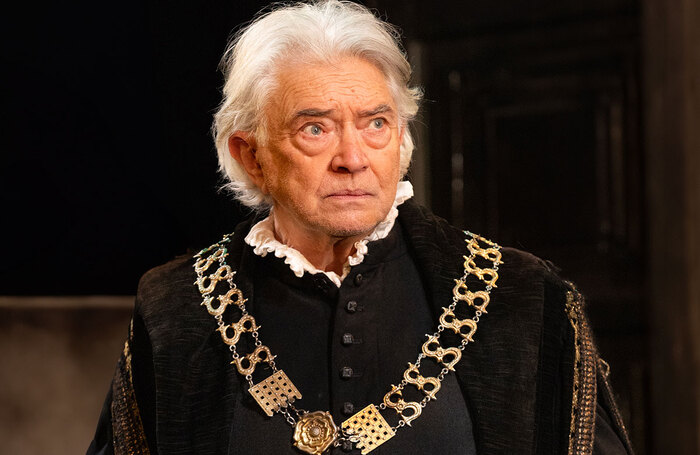
SAINTS FOR ALL SEASONS
A Triptych of Saints of Conscience
Sometimes it is made very plain to us what we should attend to. Three saints this week, one day after another, reminded me that we must look to our consciences and have the courage to obey them.

ST JOHN HENRY NEWMAN
Last Thursday, it was announced that St John Henry Newman, the founder of our Oratorian communities in England, is to be proclaimed a Doctor of the Church. He will be included among that select portion of the company of saints whose teaching carries exceptional authority.
Often the Doctors of the Church have a personal title which reflects the quality, or an identifying theme, of their teaching. (St Thomas Aquinas is the Angelic Doctor; St Bernard of Clairvaux, the Mellifluous Doctor.) Many people believe that Newman should be known as the Doctor of Conscience, because among the many great contributions he made to the proclamation of the Church’s teaching it is his writing on conscience (and the living example he gave in his life of the spiritual vitality that can be found by following a well-informed conscience) which is of the most enduring significance.
Following his conscience, Newman left the Church of England and became a Catholic. This journey did not begin as a rejection of the Church of his baptism but grew out of a serious desire to understand more clearly and more deeply what the Church is. In the early 19th Century Newman (and his friends in the Oxford Movement)were disturbed by increasing political interference in ecclesiastical affairs.
The Church must always be independent of the State because the Law of God must always come before, and inform, the Laws of Man. Interference was not only the result of the growing power of political institutions (like Parliament, opened up for the first time in 1832 to MPs who were not members of the Established Church); it was also the result of the weakness and capitulation of religious authorities who ought to have known better.
Newman found the freedom from interference he was looking for in the Church of Rome, together with its theological rationale. But his journey was not over. Rejected by family and former friends, Newman found himself suspect among his new co-religionists who had forgotten much of the history that had led him to them: the writings of the Fathers of the Church(above all St Athanasius who stood up for the Divinity of Christ against powerful emperors and a weak episcopate); and the fact that, in the Fourth Century, it was monks and holy layfolk who made a better job than the bishops of preserving the truth of the Gospel.
Memorably, Newman described conscience as “The aboriginal vicar of Christ in the soul”. These are risky words. The Pope is the Vicar of Christ; but before there ever was a Pope there was conscience, and it is our conscience we are obliged to follow. [To be sure, we are bound to inform our consciences from the reliable source of the teachings of the Church.]
“Certainly, if I am obliged to bring religion into after-dinner toasts, (which indeed does not seem quite the thing) I shall drink- to the Pope, if you please - still, to conscience first, and to the Pope afterward.” This affirmation from Newman’s “Letter to the Duke of Norfolk” is often quoted to justify dissent from Church teaching but, properly understood as referring to an informed conscience, it is clear that when the Church is functioning as it should, opposition between conscience and papal teaching is rare.
Nevertheless, it is not surprising that Newman found himself suspect as a result, guided by his own conscience to defend conscience itself, misunderstood as disloyal both to his country and to his Church.

ST JOHN THE BAPTIST
On Saturday, the Lectionary gave us St Matthew’s account of the death of St John the Baptist.
“Herod had arrested John, chained him up and put him in prison because of Herodias, his brother Philip’s wife. For John had told him,‘It is against the Law for you to have her.’ And though he wanted to put him to death, he feared the people, because they held him to be a prophet.”
St Mark’s account of the same event gives us a slightly different perspective:
“Herod feared John, knowing that he was a righteous and holy man, and kept him safe. When he heard him, he was much perplexed; and yet he heard him gladly.”
Once again, it is a question of conscience standing up to authority. John stands up to a king - a king who clearly has enough of a conscience to be perplexed and attracted at the same time by Jesus’ words - while the religious authorities, with other priorities, are silent in the background. So Herod, moved more by fear than by truth, has John the Baptist put to death.
Which of us has not experienced that mixture of perplexity and attraction when the voice of conscience pricks us, often when we are reading the Gospel? Are we like Herod, motivated by fear of man? Or are we moved by reverence for the God who speaks in our inmost hearts?
St John the Baptist is a saint with a conscience, and the courage to follow it, even to death in the face of a powerful king and in a world in which religious authority, which ought to be on the side of truth, is weak and even hostile.

ST THOMAS MORE
On Friday, the intervening day, the Fathers and Brothers had an evening out at the theatre to see A Man for All Seasons, the play by Robert Bolt about St Thomas More, the Tudor Lord Chancellor of King Henry VIII, executed for refusing to recognise the King’s marriage to Anne Boleyn or his headship of the Church. The excellent film version I know well, but the play was new to me. There are some significant differences.
During the interval, Br Thomas and I were lamenting the fact that the curtain is hardly ever used in the theatre these days. It is, of course, a feature of modern productions, which make a virtue of the actors’ proximity to the audience and of overcoming the boundary between appearance and reality.The idea is nothing new except in the frequency with which it is now used – it is to be found in Greek drama and in Shakespeare. It occurs fiction and painting too. It is called “breaking down the fourth wall” – the other three walls being the scenery – and opening up the drama on stage to audience participation. The conversation caused me to think about the particular way Bolt does this in the play but not in the adaptation he made for the screen.
Robert Bolt introduces a character called “The Common Man”,one of us, but a character on the stage. He addresses us, sometimes as himself, and sometimes as an actor taking on different minor roles within the play. In the production we saw, this is cleverly shown by onstage changes of hats from the costume basket.
“The Sixteenth Century,” he tells us, “is the century of the common man. Like all the other centuries!” There have always been people like us. We are all complicit.
The first role he takes on is that of Matthew, Thomas More’s likeable but dishonest steward. He swigs his master’s wine when he thinks nobody’s looking and then claims not to know its quality when asked by More –who is under no illusion about his character! It’s an attractive fault, one we might share, a certain complicity is established. We find ourselves less eager to compare ourselves with Matthew later in the play when it is his master’s secrets rather than his wine that he makes free with.
One by one the Common Man takes different parts, the boatman (just doing his job, ferrying anyone in any direction); the innkeeper (agreeing with all the contradictory opinions of his customers); the foreman of the jury (easily swayed from the path of justice by power and peer pressure); and the executioner who wields the axe at the end.
The Common Man is, in his different guises, each one of us, cowardly or compromising, avoiding commitment with the voice of sweet reason.
Robert Bolt, who had no particular religious faith, said he was inspired by the dramatic possibilities offered by man of conscience holding fast in a world of tyranny, fear and compromise. He also saw that there was dramatic potential for exposing the corruption of society in the weakness of those who brought about More’s death. A Catholic might call this Original Sin.
Towards the end of the play I began to wonder how the author was going to achieve a dramatic climax. We all knew what the end was to be, that the head must be cut off, and More would die; and sure enough the drama came: the drums rolled and the axe was raised, the lights blacked out and we heard it fall.
But then came the real drama. The lights came up and the Common Man burst through the fourth wall. [I found the script online!]
“I'm breathing. Are you breathing too? It's nice, isn't it? It isn't difficult to keep alive, friends. Just don't make trouble - or if you must make trouble, make the sort of trouble that's expected. Well, I don't need to tell you that. Good night. If we should bump into one another, recognize me!” EXIT
Henry VIII, Thomas Cromwell and Richard Rich are not the only villains of the piece. In some way, we are all the villains, all accomplices, just as we are all complicit in the death of Our Lord Jesus Christ. “I was just doing my job.” “I was only obeying orders.” Are we swept along with the tide of compromise with the world. Or are we guided by the voice of our conscience, like St John the Baptist, St John Henry or St Thomas More, even to the point of death? Probably a bit of both.
Do we let the voice of conscience burst through the fourth wall of our illusions and bring us face to face with some of the grubby realities of our lives? Who do we recognise when we look in the mirror?